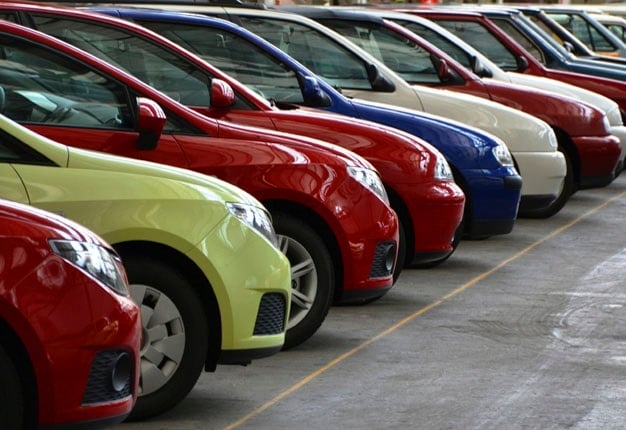April 2020 was nothing short of a bloodbath.
Though it was expected that the new car market would suffer hugely over the past month, no one could have imagined that it'd be as bad as it was.
Where new vehicle sales would hover between 30 000 and 40 000 units every month, April 2020 only registered 574 units. That's almost 2% of what is usually achieved!
Naamsa CEO Michael Mabasa said: "The 98.4% drop in new vehicle sales is a true reflection of the South Africa economy at the back of a 35-day hard lockdown. Economic activity was not possible, because the country prudently elected to support the imperative to contain the Covid-19 virus and save lives."
One can barely begin to comprehend the impact this had on the economy, let alone the sales teams of every dealership in the country. It's a dire situation, which only justified the call for dealers to be opened under Level 4 restrictions.
Would you buy a new vehicle if lockdown level 3 allows it? Email us with your reason and what car you're wanting to purchase.
2020 Toyota Hilux. Image: AutoTrader
The prognosis
Compared to April 2019, when 36 787 new vehicles were sold across all segments, the 574 units of April 2020 leaves the industry with a mountain to climb if it wants to salvage anything from this year. What's worse, May could be even more shocking than April, given that Level 4 still does not allow for the sales of automobiles as yet.
The split in sales for the 574 new vehicles, in the four categories, were: Dealer: 47.9%; Government: 37.8; Rental: 12.4; Corporate: 1.9%.
Bakkies, and other light commercial vehicles (LCVs), sold the most number of units, though 318 is hardly any cause for celebration. The LCV sector is one of the most flourishing in both the country and the world, and one can only shudder when you think of the impact this has on the economy as a whole.
2020 Ford Ranger Raptor. Image: Wheels24 / Charlen Raymond
Quick scenario
The following scenario should put things into perspective:
If Volkswagen, on average, sells 2500 Polo Vivo's nationally every month - the entry-level 1.4 Trendline at R202 400, for argument's sake - they'd generate an income of R506 000 000, before deductions.
Last month, 105 passenger cars were sold in South Africa, so let's assume that the Polo Vivo is responsible for 80 of it. The same car, but the income, before deductions, would be R16 192 000.
While R16-million seems like a significant number, the very principle applies to other automakers, who have fared even poorer. In fact, Volkswagen and Nissan did not even make the list of 'top 5' best-selling automakers last month! It is a brief overlook of how poorly the industry did, and just how badly the overall economy has been affected. The Toyota Hilux, South Africa's top-selling vehicle, also did poorly, and not even it could bypass the damaging effects of the coronavirus.
2020 Volkswagen Polo Vivo. Image: Quickpic
Will we recover?
Earlier this year, during its state of the motor industry address, Toyota South Africa predicted that we would sell around 515 000 new vehicles in SA this year. And while Toyota drew their conclusions from various sources and predictions, Covid-19 was not something they predicted.
No one could have predicted the situation we're in right now.
But can South Africa's new car market recover from the sales slump experienced since February this year? A downturn that will, by all predictions, continue into June, July, maybe even August? The answer is two-fold.
When Covid-19 passes and interest rates are low, and banks are vying for your business, the new car market will pick up again. We will see specials and huge discounts on new vehicles, to secure financial salvation before the fiscal year ends. In that regard, regular business will resume.
But on the other hand, we will not meet Toyota's predicted total of 515 000 new vehicles sold in 2020. Try as we might, the economy has taken a massive hit, and buyers will be wary not to splurge too much. Some households have been intensely affected by the lockdown, and some are without income. Even those with partial income will reassess their situation before making a purchase.
South Africa, and the world, has been dealt a devastating blow by Covid-19, and we can only hope that our economy and new car market will recover from this.
The battle may be won, but this war is far from over.
